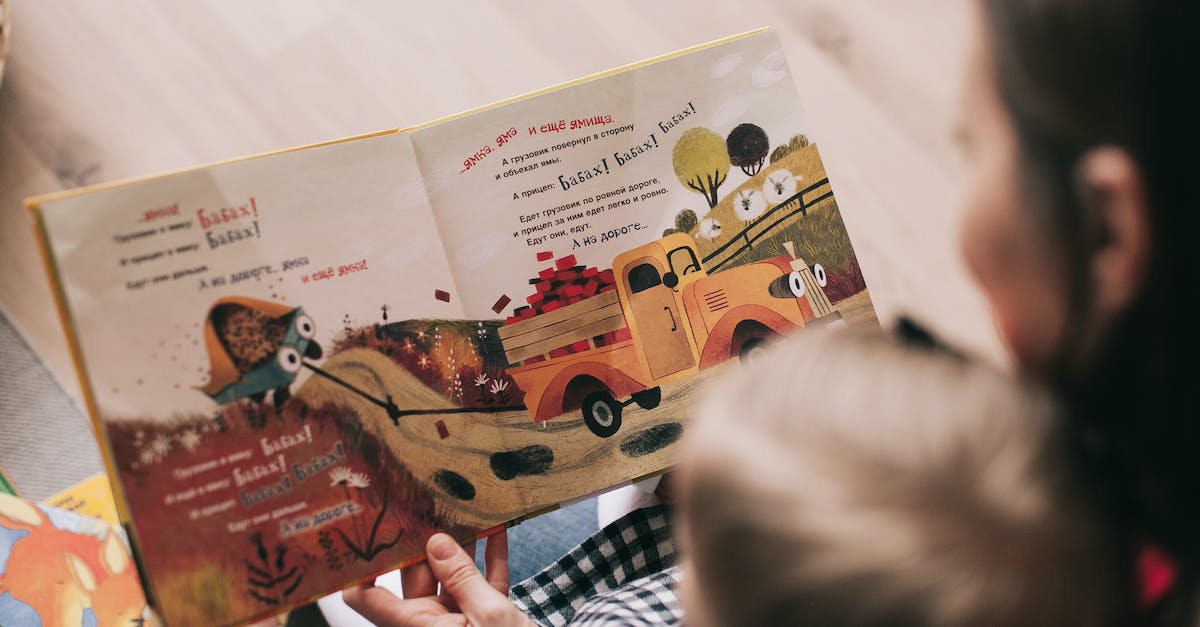Hey there, fellow parents! Let’s talk discipline – I know, I know, not the most exciting topic, but hear me out. We’ve all been there, right? The endless battles over homework, the constant sibling squabbles, the refusal to eat anything green… it can be frustrating, to say the least. But here’s the thing – discipline doesn’t have to mean yelling or punishment. In fact, there are plenty of ways to shape your child’s behavior without resorting to those tactics.
Now, I’m not saying it’s easy. Believe me, I’ve had my fair share of “time-out” moments (both for me and my kids!). But over the years, I’ve learned some tricks that have helped me keep my cool and shape my kids’ behavior in a positive way. And let me tell you, it’s made a world of difference. So if you’re tired of feeling like a drill sergeant, keep reading. I promise it’s possible to discipline your kids without raising your voice (too much)!
Understanding Discipline and Why Yelling is Not Effective

As a mom, I understand the frustration that can come with trying to discipline your kids. It can be tempting to raise your voice or yell, but let me tell you, it’s not effective. Yelling may get your child’s attention in the moment, but it won’t teach them how to behave better in the future. In fact, it can actually make things worse by creating a negative atmosphere and causing your child to become resentful or scared of you. So, let’s talk about effective ways to discipline without yelling.
First, it’s important to understand what discipline really means. Discipline is not about punishment or forcing your child to comply with your demands. Instead, discipline is about teaching your child how to make good choices and act responsibly. It’s about helping them develop self-control and learn from their mistakes. Yelling does not accomplish any of these things.
So, how can you discipline your child without yelling? Here are some tips:
- Set clear expectations: Make sure your child knows what is expected of them in terms of behavior. Instead of just saying “be good,” give specific examples of what that means, such as “use kind words,” “share your toys,” or “listen when someone is talking.”
- Offer choices: Giving your child a choice can help them feel more in control and less likely to act out. For example, instead of saying “put away your toys,” you could say “would you like to put away your toys now or after snack time?”
- Use natural consequences: Instead of punishing your child, let them experience the natural consequences of their actions. For example, if they refuse to wear a jacket on a cold day, they will feel cold and likely learn to make a different choice next time.
- Focus on positive reinforcement: Praise and reward your child when they make good choices. This will help reinforce the behavior you want to see more of. For example, if they share their toys with a sibling, give them a high-five and tell them how proud you are of them.
In conclusion, disciplining your children without yelling is not only more effective, but it also helps to create a positive and loving relationship between you and your child. By setting clear expectations, offering choices, using natural consequences, and focusing on positive reinforcement, you can help your child learn to make good choices and become a responsible and kind adult.
Set Clear Boundaries and Expectations

- Setting clear boundaries: One of the most important things you can do as a parent is to set clear boundaries for your children. This means letting them know what is expected of them, and what behavior is and isn’t acceptable. Be sure to set these boundaries early on, and stick to them consistently, so your child knows exactly what to expect.
- Communicating your expectations: Along with setting clear boundaries, it’s also important to communicate your expectations to your child. Be specific about what you want them to do or not do, and be sure to explain why it’s important. For example, instead of simply saying, “Don’t hit your sister,” you could say, “It’s not okay to hit your sister because it hurts her and makes her sad.”
- Being consistent: Once you’ve established clear boundaries and communicated your expectations, it’s important to be consistent in enforcing them. If your child knows that you’ll let them get away with something one day but not the next, they’ll be less likely to take your boundaries or expectations seriously. Stick to your rules, and follow through with consequences when necessary.
- Offering positive reinforcement: Finally, when your child does follow the rules and meet your expectations, be sure to offer plenty of positive reinforcement. Praising your child for their good behavior will make them more likely to repeat it in the future, and will also help to build their self-esteem. Some ways to offer positive reinforcement include verbal praise, stickers, or small rewards like a special treat or a trip to the park.
Remember, disciplining your child without yelling doesn’t mean you have to be a pushover. By setting clear boundaries and communicating your expectations, you can establish a firm but loving approach to discipline that will help your child thrive.
Use Positive Reinforcement

- Focus on positive behaviors: Instead of yelling at your kids for doing something wrong, focus on praising them for doing something right. This will reinforce positive behavior and encourage them to continue behaving well. For example, if your child puts away their toys without being asked, tell them what a great job they did and how proud you are of them.
- Give them choices: Children like feeling in control, so give them choices as much as possible. For example, instead of telling your child to put on a specific outfit, ask them which outfit they would like to wear. They will feel empowered and more likely to cooperate.
- Use logical consequences: Instead of yelling or punishing your child, use logical consequences to teach them about cause and effect. For example, if your child leaves their bike outside and it gets rained on, they will have to clean and dry it before they can ride it again. This teaches them responsibility and helps them understand the consequences of their actions.
Offer Choices and Consequences

- Offer Choices: One effective way to discipline your kids without yelling is by offering them choices. For instance, instead of saying “Do your homework now!” ask them if they’d like to do it before dinner or after. This gives them a sense of control over their schedule and helps to reduce their stress levels. By giving your child a choice, you’re also showing them that you trust them to make good decisions, which can help to foster a positive and respectful relationship between you and your child.
- Consequences: Another effective discipline technique is to clearly outline the consequences of your child’s actions. For example, if your child throws a tantrum because they don’t want to go to bed, you could say something like “If you continue to behave like this, you won’t be able to watch TV tomorrow.” By doing so, you’re teaching your child that their actions have consequences, which is an important life lesson. It also helps to set boundaries and expectations for behavior, which can help to reduce stress and promote positive behavior in the long run.
- Be Consistent: It’s important to be consistent when it comes to discipline. If you let your child get away with bad behavior one day and then punish them for the same behavior the next day, they’ll become confused and resentful. Instead, try to establish clear expectations and consequences for behavior, and stick to them consistently. This creates a sense of stability and predictability for your child, which can help to reduce anxiety and promote positive behavior.
- Positive Reinforcement: Finally, don’t forget to use positive reinforcement when your child behaves well. Praise, hugs, and plenty of positive attention can be much more effective than punishment in terms of encouraging positive behavior in your child. By saying things like “I’m so proud of you for doing your homework without being asked!” or “You did a great job cleaning up your toys,” you’re showing your child that you appreciate their efforts and successes. This can help to boost their self-esteem and encourage them to continue behaving well in the future.
Communicate Effectively

Setting clear boundaries for your kids is important when disciplining them. This means letting them know what behaviors are acceptable and what are not. When they cross the line, gently remind them of the rules and consequences. Being consistent in enforcing boundaries helps kids learn to respect them.
- 2. Use Positive Reinforcement: Instead of always focusing on negative behaviors and consequences, make sure to also praise your child when they exhibit positive actions. This reinforces good behavior and motivates them to continue acting appropriately.
- 3. Listen and Empathize: Sometimes, kids act out because they are feeling emotional or overwhelmed. Take the time to listen to your child’s perspective and empathize with their feelings. This can help defuse a situation and prevent it from escalating further.
- 4. Stay Calm and in Control: It can be easy to lose your temper and start yelling when your child is misbehaving, but this approach usually makes things worse. Instead, try to stay calm and in control of your emotions. This sets a good example for your child to follow and helps them learn to stay calm in stressful situations.
- 5. Be Consistent: Consistency is key when it comes to disciplining your kids. Make sure to enforce rules and consequences consistently, so your child knows what to expect. This reduces confusion and helps them learn to take responsibility for their actions.
Remember, the goal of discipline is not to punish your child but to teach them right from wrong. By following these tips, you can effectively discipline your kids without resorting to yelling or other negative tactics.
Be a Role Model for Positive Behavior

- Lead by example: Children learn from watching adults, so the best way to teach positive behavior is to model it yourself. Practice kindness and respect towards others, and show your children how to handle conflicts in a calm and reasonable manner. By demonstrating positive behavior, your children will learn to do the same.
- Communicate your expectations: Be clear about your expectations for your child’s behavior, and explain why certain behaviors are not acceptable. This can help them understand why discipline is necessary, and encourage them to change their behavior without the need for yelling or punishment.
- Use positive reinforcement: When your child demonstrates positive behavior, be sure to praise and encourage them. Positive reinforcement can be a powerful tool in shaping behavior, and can help your child understand what is expected of them.
- Establish consequences: It’s important for children to understand the consequences of their actions. Establish consequences for negative behavior, and make sure your child understands what will happen if they don’t behave appropriately. This can help prevent negative behavior in the future.
- Stay calm: Yelling and losing your temper can actually make your child’s behavior worse. Instead, try to stay calm and speak to your child in a firm but gentle tone. This can help de-escalate difficult situations and encourage your child to listen and respond positively.
- Be consistent: Consistency is key when it comes to discipline. Make sure you are consistent in the way you handle behavior problems, so your child understands what is expected of them. This can help prevent confusion and frustration, and encourage positive behavior in the long run.
Conclusion
And there you have it, folks! Discipline doesn’t have to be a scary four-letter word. With a little effort and some easy-to-implement tactics, you can be on your way to a peaceful and respectful household. Remember, consistency is key, and positive reinforcement goes a long way. And if all else fails, remind yourself that this too shall pass, and tomorrow is a fresh start. So take a deep breath, give yourself a pat on the back, and go tame those tiny tigers! Happy parenting, everyone!




